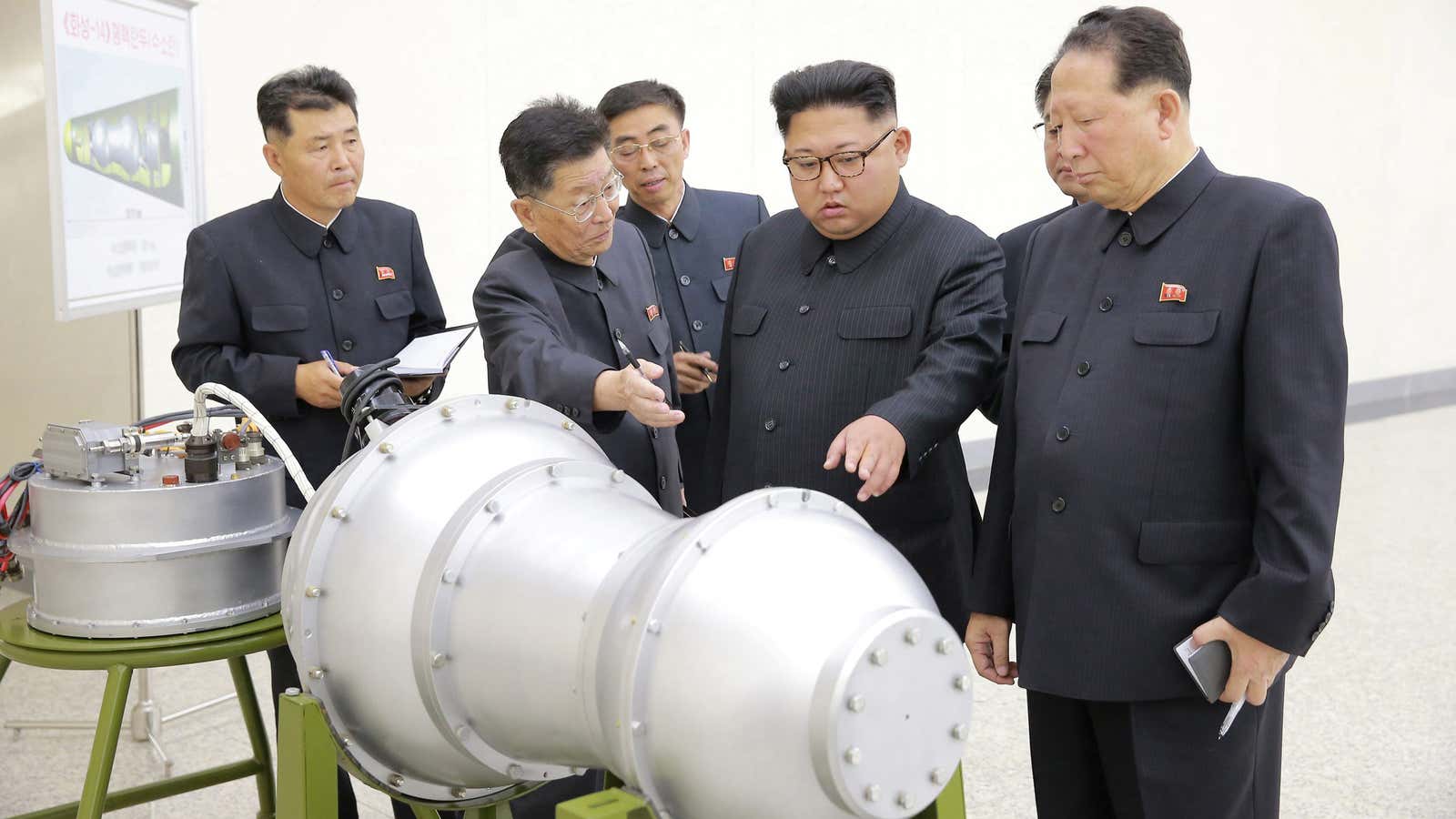North Korea’s sixth—and most powerful—nuclear test to date has sparked widespread condemnation from world leaders.
US president Donald Trump slammed North Korea’s hostile “words and actions” in a series of tweets following the nuclear test. Trump went on to accuse South Korea of favoring a policy of “appeasement,” insisting that approach “with North Korea will not work,” because the North Koreans “only understand one thing!” Trump will meet with his national security team later today to discuss North Korea’s latest nuclear test.
The latest nuclear test is North Korea’s boldest show of defiance against Trump. The nation’s leaders chose to ignore the US president’s vow last month to bring “fire and fury like the world has never seen” if North Korea continued threatening the US. Trump had even taken to Twitter last month to declare that “military solutions are now fully in place, locked and loaded, should North Korea act unwisely.” His words have clearly fallen on deaf ears.
South Korean President Moon Jae-in also voiced strong criticism against North Korea. He called for the “strongest possible” response to the nuclear test, including new sanctions to “completely isolate” the country. He added: “I can’t help but be disappointed and outraged. North Korea had made an absurd tactical mistake by committing a series of provocations such as launching ICBM [long-range] missiles and conducting a nuclear test, which was heightened tensions on the [Korean] peninsula and is threatening world peace. It will isolate them further.”
China’s foreign ministry released a statement in which it “resolutely opposes and strongly condemns” North Korea’s actions. While Chinese president Xi Jinping made no direct reference to nuclear test, he spoke of a “dark shadow over the world” that threatens more than half a century of peace. In a 40-minute speech at the BRICS summit in Southeast China, Xi said: “People around the world want peace and cooperation, not conflict or confrontation.” The timing of the nuclear test has widely been seen as a major diplomatic embarrassment for China, North Korea’s only major ally.
Japan’s prime minister said North Korea’s nuclear test is “absolutely unacceptable,” adding that North Korea’s nuclear development program poses a “more grave and urgent” threat to his country. “It is significantly hurting regional and international peace and stability,” he said.
In Europe, French president Emmanuel Macron led the charge for members of the United Nations Security Council “to react quickly” to North Korea’s latest provocation. Macron said the latest nuclear test had to be met with “the greatest firmness” to restart dialogue. British foreign secretary Boris Johnson warned there is “no easy military solution” to preventing North Korea’s nuclear program rapidly developing, but insisted that all options were still on the table.
Russia had urged all sides to “remain calm and to refrain from any actions that lead to a further escalation of tension.” The statement released by the foreign ministry notes North Korea’s action deserves “the strongest condemnation,” and then called for all interested parties “return to dialogue.”
Experts suggest the latest North Korean nuclear test was carried out with a bomb that was 10 times more powerful than the last one North Korea conducted in 2016. Preliminary data from the device suggests it surpasses the destructive capabilities of the bomb dropped on the Japanese city of Nagasaki in 1945. As one seismologist succinctly put it:
